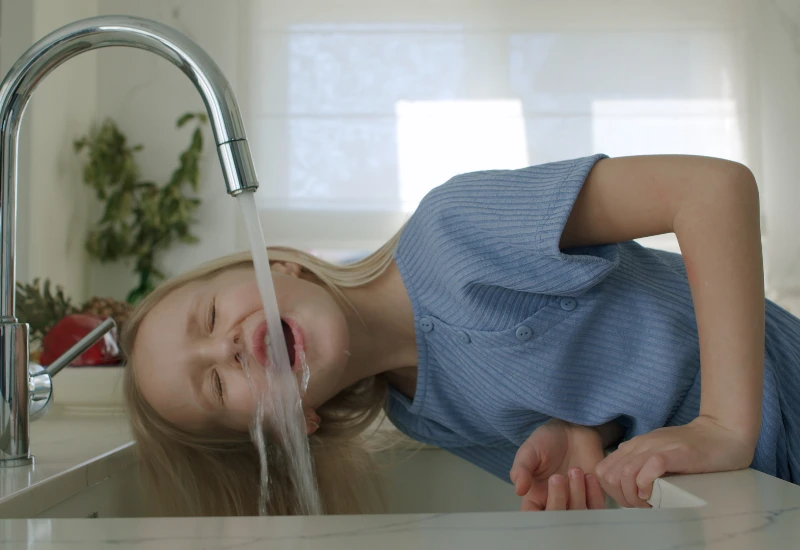
Navigating the ongoing discourse surrounding tap water versus bottled water, particularly in the context of Vancouver Island and Vancouver, prompts the need to dispel prevalent myths. This article aims to debunk misconceptions surrounding tap water quality and safety, shedding light on why opting for tap water not only ensures safety but also aligns with environmental responsibility, particularly in the Canadian landscape.
Common Myths About Tap Water Safety
Myth 1: Tap water is less safe than bottled water
Reality: In Canada, tap water is subject to stringent regulations and continuous monitoring to ensure safety. Regulatory bodies such as Health Canada and provincial authorities establish and enforce comprehensive standards for water quality. Conversely, bottled water, while regulated by Health Canada, may undergo less rigorous testing compared to tap water.
Myth 2: Tap water tastes worse than bottled water
Reality: Taste preferences are subjective, yet numerous blind taste tests have indicated that tap water, including that from Vancouver and Vancouver Island, stands on par with or even surpasses the taste of popular bottled water brands. Notably, studies have praised the quality of Vancouver tap water in comparative tastings.
Myth 3: Fluoride in tap water is harmful to your health
Reality: Fluoride is purposefully added to tap water across Canada to promote dental health. Endorsements from Health Canada and the Canadian Dental Association affirm water fluoridation as a safe and effective public health measure, with meticulous monitoring of fluoride levels to ensure safe consumption.
Myth 4: Tap water contains harmful levels of chemicals and pharmaceuticals
Reality: While trace amounts of chemicals and pharmaceuticals may be present in some water sources, Canadian water treatment plants rigorously adhere to safety standards. Contaminants are carefully managed to maintain water quality within safe limits for human consumption.
Myth 5: Boiling tap water makes it unsafe to drink
Reality: Boiling tap water in Canada serves as a protective measure, eliminating or inactivating harmful microorganisms. However, it’s important to note that boiling won’t remove chemical contaminants. Individuals concerned about chemical content may opt for certified water filters.
Myth 6: Bottled water is always sourced from pristine springs
Reality: Several bottled water brands use tap water or groundwater, treated and purified before bottling. In some instances, this water may closely resemble the tap water available at homes in Vancouver and Vancouver Island.
Myth 7: Tap water causes cancer
Reality: There is no substantiated evidence supporting claims that tap water causes cancer in Canada. Rigorous regulations set by Health Canada and other authorities establish strict limits on potential carcinogens to safeguard public health.
Myth 8: Chlorine in tap water is harmful to your health
Reality: Chlorine in Canadian tap water serves as a disinfectant to prevent waterborne diseases. While some may find its taste and smell unappealing, the levels used in water treatment are deemed safe. Those averse to chlorine can use water filters designed to remove it.
Myth 9: Bottled water is more convenient than tap water
Reality: Tap water in Canada is widely accessible, making it a convenient hydration option. Utilizing a reusable water bottle allows for easy refilling throughout the day, promoting convenience while reducing plastic waste associated with bottled water.
In summary, tap water in Vancouver Island and Vancouver emerges as a safe and environmentally conscious choice. Despite prevailing myths, its strict regulation, consistent monitoring, and positive taste test results establish it as a reliable alternative to bottled water. Choosing tap water not only promotes sustainability but also aligns with the convenience and cost-effectiveness of a readily available resource. So, when thirst strikes, opt for a glass of tap water and embrace a refreshing and eco-friendly alternative to bottled water in the Canadian context.